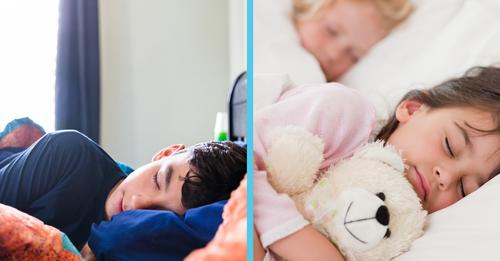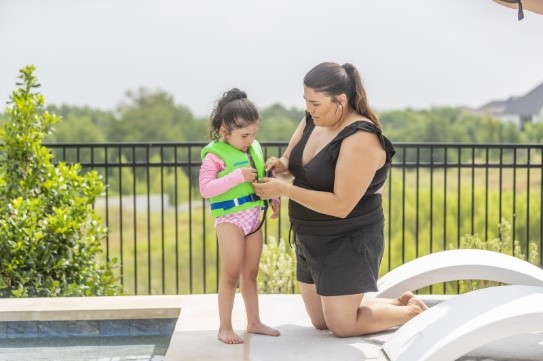How to Help Your Children get Back Into a Sleep Routine for School
Tips to help parents and their kids make the switch back to early mornings for the new school year.
By Hilary Pearson, M.D., pediatric sleep specialist, medical director of the Sleep Laboratory at Cook Children’s
Summertime is the best time of year (in my opinion!). Schedules can sometimes be looser, we can be outside more and it’s great to have a break from schoolwork! It is common to be more relaxed with the bedtime routine.

As a parent myself, I am happy to let a strict bedtime for the school year fade away. However, a late bedtime and waking up late can end up being troublesome during this time of year when we know we have to return to a more regular schedule.
It isn’t “bad” for kids to go to bed late and awaken late, as long as they are getting the total number of hours of sleep recommended for their age. I have met a few kids that go to bed late but also wake up early so they are tired in the daytime, which can impact their behavior.
Our middle school kids are programmed to go to bed late and awaken late — this change to the clock inside your brain is part of the pubertal process. Therefore, it can be hard to fight the return to an early morning wake-up in August.
How should you do it? Here is one method. Once a person has been going to bed late for a longer period of time, the brain becomes accustomed to that. So simply getting in bed early won’t mean that a person gets to sleep early.

It’s best to continue with the late bedtime, but get up a bit earlier (like 1 hour earlier) than usual. It’s hard to do but using sunlight exposure (sun to the face) and encouraging breakfast can help. Then kids will be naturally tired earlier the following evening since they arose earlier that morning. Some parents use melatonin (dose of 1-3 mg) given 1 hour earlier than the late bedtime to help with falling asleep as well.
Watching caffeine intake, aiming for calm play in the hours before bedtime and keeping lighting low can also help with resetting bedtime. Screen use (TV, phones, computer monitors, and video game consoles) should stop around 1 hour before the desired bedtime as well.
Remember that bright artificial light (from screens) can trick your brain into thinking it is daytime. Try not to allow afternoon naps, so kids build up their sleepiness- aiming for a reasonable bedtime.
Sometimes writing down the plan for bedtime/waketime change can help. Kids can be an ally here so involve them in the process.
For more information on Cook Children’s Sleep Center click here.


